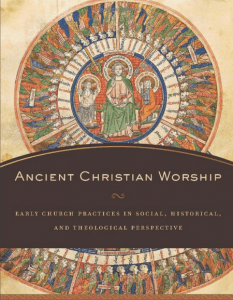One of the fundamental questions many today ask of baptism is this: Does it do anything? Or, is it effective for salvation?
Where are you on the baptism questions? What are your clear and fixed points? Are you at the Sacramental end or the Symbolic end of this discussion? Is it possible to construct a theology of baptism solely on the NT or does the Tradition somehow enter into the discussion to create questions that the NT does not quite answer?
There is a spectrum, beginning with the high sacramental view of the Roman Catholic Church found in the Catechism (you can scroll up and down to find the numbers):
1213 Holy Baptism is the basis of the whole Christian life, the gateway to life in the Spirit (vitae spiritualis ianua),4 and the door which gives access to the other sacraments. Through Baptism we are freed from sin and reborn as sons of God; we become members of Christ, are incorporated into the Church and made sharers in her mission: “Baptism is the sacrament of regeneration through water in the word.”5
Then the Catechism continues with the “necessity” question:
VI. THE NECESSITY OF BAPTISM
1257 The Lord himself affirms that Baptism is necessary for salvation.60 He also commands his disciples to proclaim the Gospel to all nations and to baptize them.61 Baptism is necessary for salvation for those to whom the Gospel has been proclaimed and who have had the possibility of asking for this sacrament.62 The Church does not know of any means other than Baptism that assures entry into eternal beatitude; this is why she takes care not to neglect the mission she has received from the Lord to see that all who can be baptized are “reborn of water and the Spirit.” God has bound salvation to the sacrament of Baptism, but he himself is not bound by his sacraments.
1258 The Church has always held the firm conviction that those who suffer death for the sake of the faith without having received Baptism are baptized by their death for and with Christ. This Baptism of blood, like the desire for Baptism, brings about the fruits of Baptism without being a sacrament.
1259 For catechumens who die before their Baptism, their explicit desire to receive it, together with repentance for their sins, and charity, assures them the salvation that they were not able to receive through the sacrament.
1260 “Since Christ died for all, and since all men are in fact called to one and the same destiny, which is divine, we must hold that the Holy Spirit offers to all the possibility of being made partakers, in a way known to God, of the Paschal mystery.”63 Every man who is ignorant of the Gospel of Christ and of his Church, but seeks the truth and does the will of God in accordance with his understanding of it, can be saved. It may be supposed that such persons would have desired Baptism explicitly if they had known its necessity.
1261 As regards children who have died without Baptism, the Church can only entrust them to the mercy of God, as she does in her funeral rites for them. Indeed, the great mercy of God who desires that all men should be saved, and Jesus’ tenderness toward children which caused him to say: “Let the children come to me, do not hinder them,”64 allow us to hope that there is a way of salvation for children who have died without Baptism. All the more urgent is the Church’s call not to prevent little children coming to Christ through the gift of holy Baptism.
At the other end of the spectrum is the Symbolic view: Baptism is commanded (say, Matthew 28:16-20), but it is neither sacramental nor necessary. It does not save. Christ saves; Christ saves by faith. Baptism is a symbolic expression of faith, a symbolic participation in the death and resurrection of Christ.










